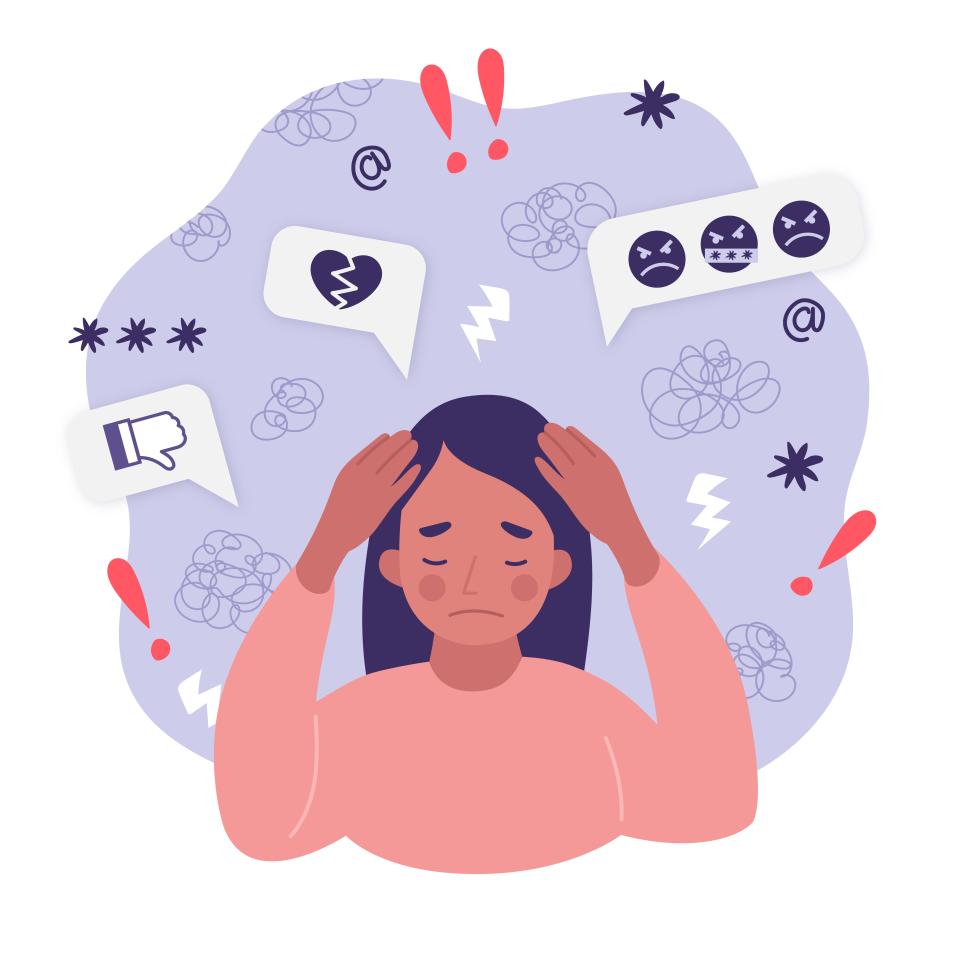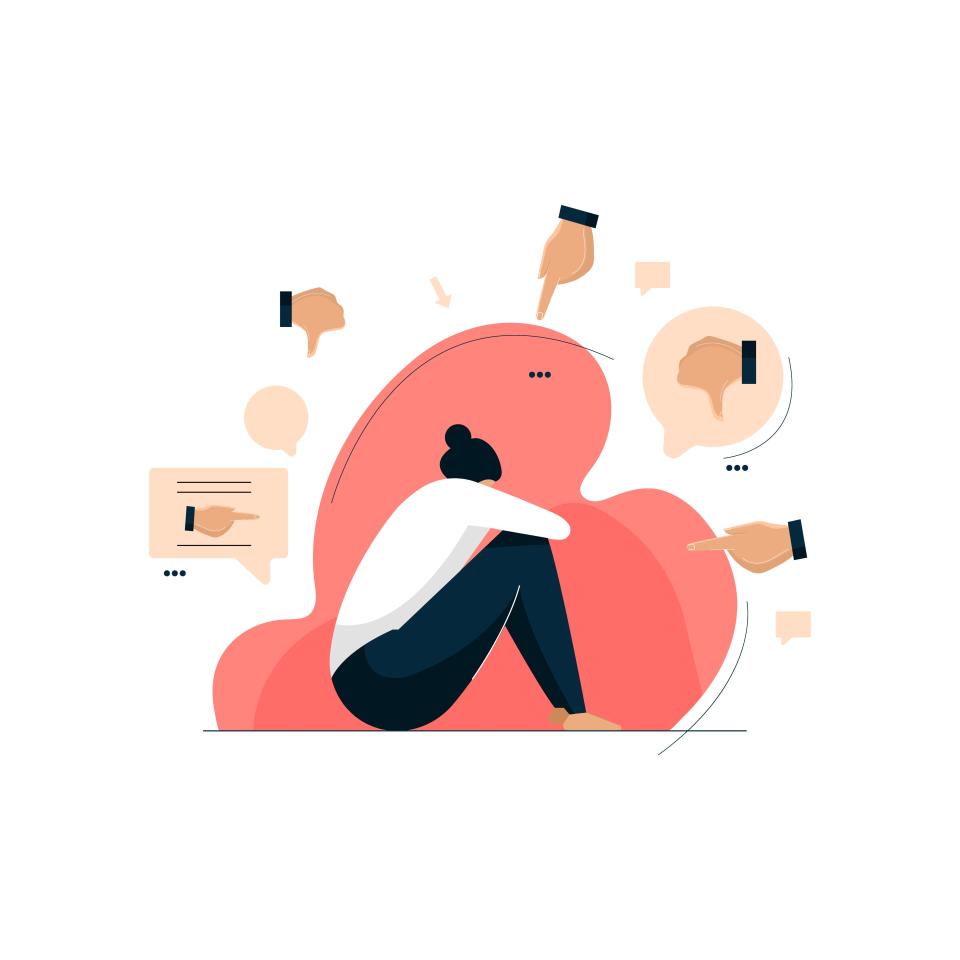Billie Eilish, Selena Gomez and what we can learn from celebrities stepping back from social media
To tweet or not to tweet: That is the question.
Billie Eilish revealed that she has deleted social media apps off her phone after coming across posts about herself that have negatively impacted her mental health.
“Anything I read on the internet I believe," Eilish, 21, said in a in a clip from an upcoming appearance on Conan O'Brien's podcast. "Me! And I know for a fact that’s stupid and I shouldn’t do that because I have proof that it’s not all true. Almost none of it’s true,” she said. “It’s, like, little things, like small white lies that goes over everybody’s head, but everyone believes.”
Selena Gomez also recently told fans she would take a break from social media after online rumors of a supposed feud between her and Hailey Bieber peaked at the end of last month.
"I'm going to be taking a second from social media, because this is a little silly. I'm 30 and am too old for this," Gomez told fans on a TikTok livestream in February. "But I love you so much and I'll see you guys sooner than later. I'm just gonna take a break from everything."

Over the last few years, more stars including Chrissy Teigen, Alec Baldwin and Lana Del Rey have also spoken out about stepping away from social media for the sake of their mental health.
Friday is National Day of Unplugging. How do you know if it's time for you to deactivate Instagram, Twitter or Facebook? We asked experts to weigh in on what signs to look for and how to form healthier habits with social media.
What can we learn from celebrities deleting their social media?
While social media has its benefits – such as building networks and maintaining contact with others – too much time on these platforms is linked to depression, anxiety and stress, explains Dr. Shahla Modir, chief medical officer at All Points North Lodge, an addiction treatment center.
Modir says some people can develop an unhealthy relationship with social media platforms and start to internalize "likes" by creating a connection between online responses and their self-esteem.
Digital wellness expert Mark Ostach says he encourages people to "think about the micro-levels of digital trauma that exist when you quickly check your social media in between a conversation or right before you go to bed," including digesting things like politically polarizing headlines or traumatic posts about a friend's health. "It happens in a moment’s notice, and I believe it’s causing some low levels of trauma to what we think and how we feel.”
More: Why does the internet want a Selena Gomez, Hailey Bieber 'feud' so badly?
Signs it's time to take a social media break
If you're comparing yourself to others online
"FOMO (the fear of missing out) can trigger feelings of anxiety," Modir explains. "The highlights people present are interpreted as their real life not their 'reel life.' If users are spending too much time online on social media sites, it can be difficult to keep perspective on what real life is."
If you're compulsively checking your phone
Modir says a warning sign is checking your "notifications and messages every hour in a way that affects your engagements, occupation or social relationships."
"'Likes' can be very addictive, causing a dopamine hit to the brain of feel-good chemicals that reinforce like-seeking behavior and compulsive checking," she says.
If your real-life interactions are suffering
Modir says this could come in the form of "decreased social interaction with friends and family in favor of social media engagement" or people in your life have "complained about your social media usage interfering with social interaction."
Ostach says another indicator is if your interactions start to rely on social media, including finding yourself “recycling news headlines in your conversations.”
“That often sounds like, ‘Today on Facebook I read,’ or ‘Today on Instagram I saw.’” he explains. “It’s almost endangering our ability to think for ourselves and just develop our own casual, organic conversations.”

If you wake up (or go to sleep) feeling off
Another sign is “when you wake up worried about what you saw on social media the night before,” according to Ostach. This is often linked to late-night “doom scrolling," which he describes as a “horrible habit that often leads to night terrors or an unrestful night’s sleep.”
Modir adds that late night social media engagement that disrupts your sleeping schedule is also a sign it may be time to set some boundaries with your device.
If you start viewing yourself negatively
Jermaine Graves, a licensed clinical professional counselor based in Washington, D.C., says it's time to take a break when social media causes someone to "view themselves in a negative light, causing feelings of worthlessness, hopelessness or depression."
If you feel increasingly anxious, depressed or lonely using social media
"Social media can trigger competitive feelings, which cause anxiety in the user, leaving them to feel like they need to keep up to meet the social expectations of the people they follow, which may be unrealistic and based in fantasy," Modir says.
Benefits of unplugging from social media

"Unplugging allows people to be more mindful and present in their actual lives leaving opportunity for new hobbies and self care," Modir says. "Disconnecting can also improve sleep and productivity since you’d be reducing distraction and exposure to blue light."
Ostach says he views social media consumption similar to food consumption, encouraging people to be mindful of the "digital calories" that they’re consuming throughout the day.
“You wouldn’t eat three donuts, a cheeseburger and drink a Coca-Cola before bed, so why are you scrolling in bed, consuming sometimes empty digital calories?” he said, adding that there are "healthy digital calories," including sending someone an encouraging message or leaving a comment that demonstrates support and compassion.
More on celebrities, mental health and social media
More: Billie Eilish reveals to Lana Del Rey she saw viral TikTok 'about how I'm a horrible person'
'It's a brutal place' for women: Chrissy Teigen explains her Twitter hiatus
What is FoMO slang for? How the fear of missing out might be tanking your mental health.
Everybody wants to influence the world: Inside the fame, money and evolution of influencers
Contributing: Cydney Henderson, Edward Segarra
This article originally appeared on USA TODAY: Selena Gomez, Billie Eilish and celebrities taking social media breaks

 money
money 